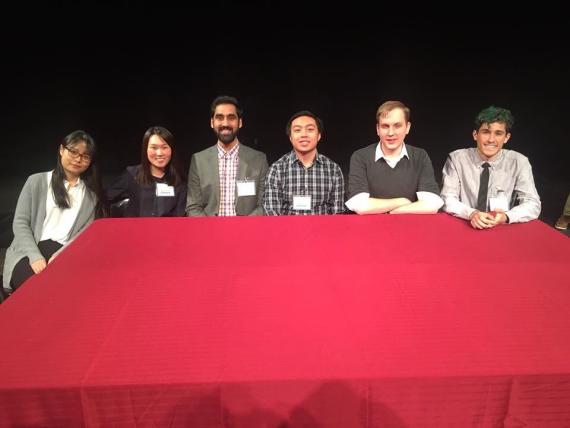Ideathon:
An ideathon is a short, intensive, workshop-like experience for students to address some of the most pressing challenges of our time. Participants work in teams and use design thinking and innovative learning practices to ideate and collaborate on possible solutions. C21 + CoMotion Ideathons are primarily for undergraduate students from all disciplines. In fact, the best ideathons combine students from many majors –a biology student working together with a linguist, drama student, and public policy major. The wider cross-section of students involved, the more perspectives there are involved in coming up with solutions that are relevant and sensitive to the needs of the end-user.
The problem proposed: "How can we enhance engagement in the humanities at the University of Washington?"
Our winning "idea" or "insight": We focused on boundaries to accessing the humanities, which include: fiscal limitations, cultural stigmas, and institutional rigidity. We want to demystify and destigmatize the humanities by disseminated the evidence surrounding the realities of STEM/humanities (e.g. the difference in average pay, ability to get a job, who finds meaningful jobs, etc.) and provide professional development to advisors and professors to both disseminate this data and generally support students in humanities. With the latter, faculty and staff can greater facilitate reflection of skills emerging from coursework and give students the rhetoric to be a political entity in an arena where STEM has this perceived upper hand. In addressing institutional rigidity, we asked that pathways be opened up between majors so that students have the ability to - but are not required to - be interdisciplinary. For example, the dance program allowed greater overlap with science courses (e.g. biology's anatomy fulfilled dance's anatomy requirement) and the program witnessed a spike from 20 majors to 60+ in two years. Finally, we requested greater transparency in course offerings - a fairly straightforward administrative task - and "smarter" or "personalized" course recommendations utilizing the technology that Facebook, Google, etc. already uses (where, for example, a student who studies microbiology & global health can find out about the history class on plagues).
Read more here: https://c21.washington.edu/our-programs/ideathon-2016
